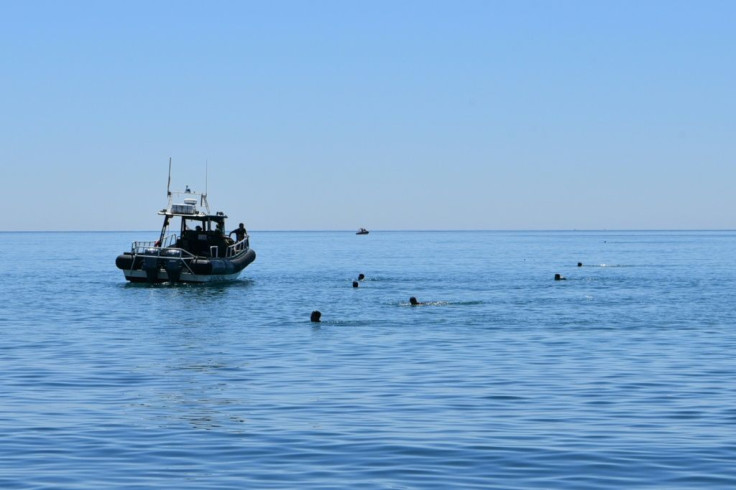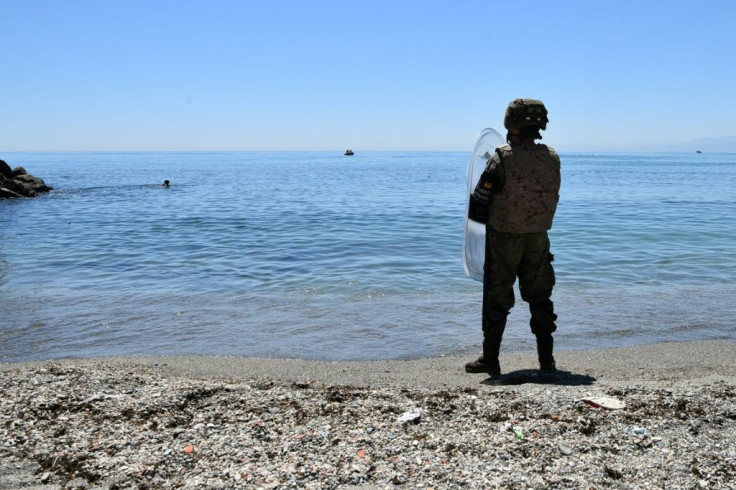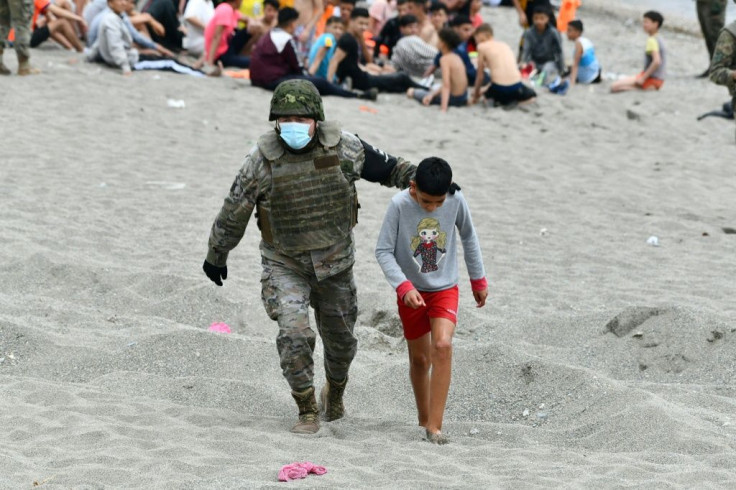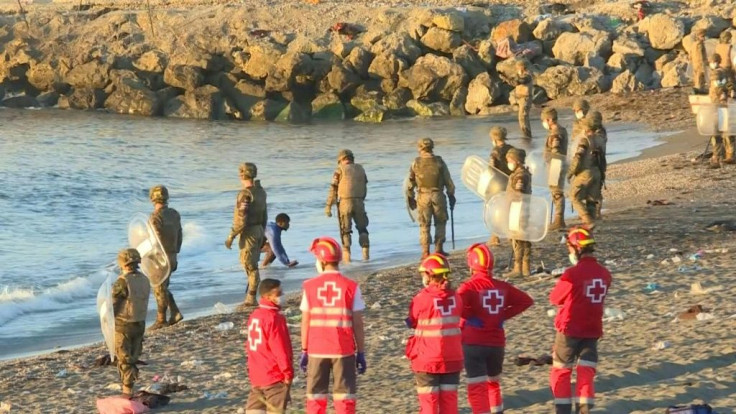After Swimming To Ceuta, Migrants Turned Back Or Left In Limbo
It was only 200 metres from the Moroccan beach to Spain's Ceuta enclave but swimming fully clothed is exhausting, with many calling for help from a nearby police rescue boat.
Daylight is just beginning to break over Tarajal beach on Ceuta's southern border with Morocco and about 50 metres out, dozens of heads are bobbing in the water, some in groups, others alone.
All of them are trying to swim to Ceuta, a tiny corner of Europe perched on the northern tip of Africa in the hope of mimicking the success of a record 8,000 migrants who crossed over at the start of the week.
"I entered the water in Castillejos and swam to Ceuta," said 37-year-old Abdelaziz Belawi who arrived on Monday at the height of the influx, referring to a small Moroccan town several kilometres (miles) south of the border.

"I came for work, there's nothing to eat there and no jobs," he told AFP. The closure of Morocco's borders due to the Covid crisis had left him penniless and hungry, he said.
Under a blazing sun, groups of young men are aimlessly wandering around Ceuta. They've been here for two days now and the initial euphoria of getting in seems to have worn off.
Bored and hungry, many have gravitated to a verdant city centre park where they're sprawled on the grass.

Although several NGOs are working to distribute food, many say they've had to rely on the goodwill of people in the street for something to eat.
Omar, 21, who comes from the northern port city of Tangiers, said he spent four hours in the water before reaching dry land.
"Here we're living in the street with nothing to eat," he told AFP, saying it was "hard work" to ask people for food or money.
"You see how we're living here? There's nothing, but I don't want to go back."

For most, life in Ceuta may be tough but it's better than the reality back home.
"You have a family and you have seven euros to feed 8 people, what do you do?" said 34-year-old Mohammed Tribak who also swam over on Monday.
"Life has no meaning for the Moroccan government, but for us, it is worth a lot.
"You see all those people who are dying at sea? It's not for nothing -- it's because of the crisis, and the lack of jobs."
Among the crowds of young men is 15-year-old Rashid al-Azuzi from Tetouan, a town some 40 kilometres (25 miles) down the coast, whose family does not even know he is there.

Speaking quietly, he admits he was afraid -- but not of having to swim.
"It was seeing so many other people swimming in the water, it scared me," he told AFP through a translator, his voice not yet broken.
"I walked half of the way along the coast and swam the last 50 metres." Offered a phone, he contacted his family, speaking to his father who was intially angry but also relieved, pledging to send him some money.
Back at the beach, the influx continues although the numbers are far lower than Monday -- and the police and army are now amply deployed along Ceuta's southern beaches.
Passing the breakwater where the border fence juts into the sea, some of the stronger swimmers try to pass the first beach where dozens of soldiers carrying riot shields and batons look on implacably.
Almost exclusively young men, most of the swimmers are fully clothed although some are in shorts, and all are quickly herded off to the nearby border fence to be sent back.
None are allowed up to the road to Ceuta -- except one, a 29-year-old with dual Moroccan-French nationality who has his documents sealed in a plastic bag.
Drenched to the bone and his bare feet covered with sand, Mohammed Rezzoughi said he went to Morocco during Ramadan but was unable to get home to his wife and daughters who live in Agen.
"With Covid-19 it's all blocked, the border was closed so I had no other choice but to swim. It was the only solution," he told AFP. The police had let him go after seeing his French driving licence.
"It's very dangerous because you are afraid, you are very stressed," said Rezzoughi.
"I don't know how to swim very well so I bought myself a life jacket and that's what helped me get here."
A nearby Guardia Civil officer confirmed he was free to go but would be fined for crossing illegally. He did not say how much.
"There is very little work in Morocco, you know?" said a 24-year-old barber called Othman from the city of Tetouan.
"But there is work for us in Spain," he assured AFP.
© Copyright AFP 2024. All rights reserved.





















